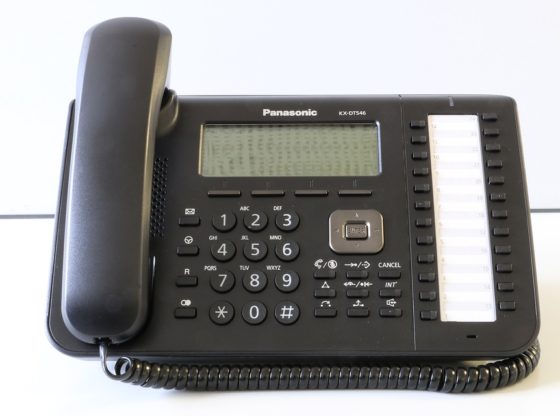One of the biggest barriers for most organizations is still the lack of understanding about the state of the organization (what data exists) and what to do with them (defining the linking elements). Understanding the relationship between information technology, which manipulates the data, and the telecommunications networks, which are placed here as linking elements, becomes a decisive factor for the great majority of organizations, since these two entities represent the indispensable supports for the strategies for the development and survival of the business and the organization itself.
The evolution of telecommunication systems shows a new path for the internal and external communications. Various facts and trends have contributed to significant and dynamic changes such as globalization, multiple purposes and organizations, cost minimization, convergence of networks, among others. Information and telecommunications technologies are of increasing importance in small enterprises, contributing greatly to their evolution and success. The use of office phone systems is constantly evolving, strongly influenced by the organizational structure and the way in which the organization uses the resources of the available information systems.
Telecommunications involves sending and receiving messages over long distances through the use of electronic technology. Common examples include phone systems, computers equipped with Internet service and portable communication devices.
Telecommunication systems are present in all areas of society, including business, education and at home. These systems offer a number of user advantages in small enterprises.
Reaching Multiple Partners
Telecommunication systems offer the advantage of bringing together or reaching several people simultaneously. A user can make a same call to several different parts at once, avoiding the need to contact each separately. The use of teleconferencing or video conferencing in the business can bring together members of an organization for a meeting that are scattered throughout the region, country or even the world; They do not need to be in the same physical location.
Speed
Telecommunication systems are of great benefit when speed is of the essence. The user can send a message or come to a contact in seconds, if necessary. In a business environment, this ensures that managers have quick access to the vital information they need to make quick decisions that benefit the company. Sellers who are out of the office can use a portable device such as a smartphones and other phone systems to get updated product specifications just before making a key presentation.
Cost Reduction
Although telecommunication systems typically require a large initial outlay by an organization, they can offer significant cost savings in the long run for installing complete office phone systems. Sending messages or providing access to information in a computerized system reduces the need for paper, which can also reduce the costs of supply and storage. Teleconferencing reduces the travel costs of an organization, as meeting participants do not need to fly to the company’s headquarters and stay in a hotel, as is the case for face-to-face meetings.
Preventing Isolation
In addition to helping employees who work in remote locations, telecommunication systems can offer vital assistance to those who are isolated for other reasons. Disabled employees with mobility problems can use the Internet, phone systems or other electronic devices to stay in touch with other office colleagues. They also have access to information and entertainment that makes them feel more connected with the rest of the world. This often prevents boredom or loneliness.
Flexibility
This technology allows any employee to work from wherever he or she is, since they can communicate as long as they have an active office phone system. In addition to the ease of mobile phone system, internet and Wi-Fi almost everywhere in the world, it requires to just have a Best tablet or even your smartphone for communication with customers or employees.
Business Competency and Growth
As we can see, telecommunication systems for small businesses emerge as a smart way of contacting, with the benefits of, reducing costs and making small business much more effective and competitive. Many corporations have embraced this solution and are reaping the rewards.
Nowadays, in order to guarantee survival and growth in the market, it is necessary to optimize processes, products, services and people, regardless of the size and / or branch of the company. In other words, you cannot spend money for nothing. In this scenario office phone system arrives as a strong ally of companies and entrepreneurs who seek to make the most of their budget, without leaving quality and professionalism aside. Phone systems alone are able to transform the client’s perception about a company. This is because telecommunication system provides resources that are highly beneficial for small enterprises.
The appropriate use of information technology, associated with telecommunications, can provide great benefits to organizations. Employing information technology and utilizing communication capabilities that can increase information processing capacity can increase user productivity, expand business opportunities, and allow greater flexibility for the organization.

